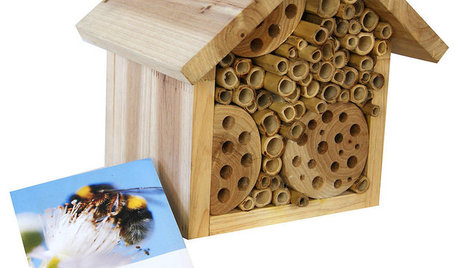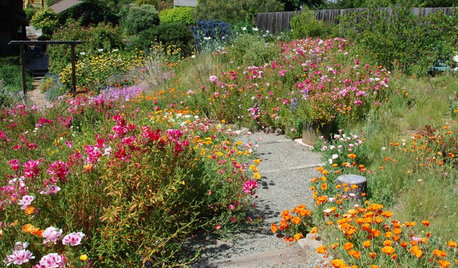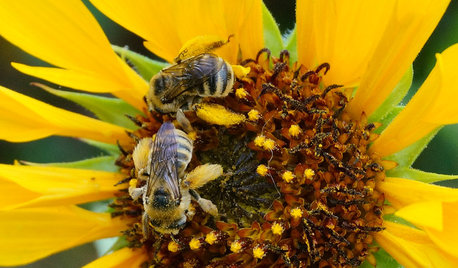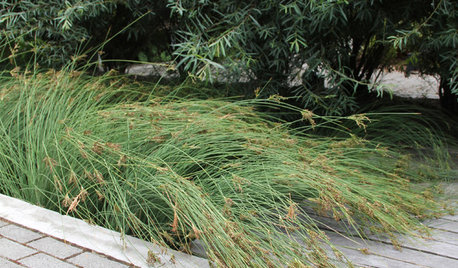Things We Can Do To Protect & Help Our Bee Friends
bloomville
17 years ago
Related Stories

FENCES AND GATESA Deer Fence Can Be Decorative as Well as Protective
You need a monster-size fence to shelter your garden from deer, but it doesn’t have to look like a monstrosity
Full Story
GARDENING FOR BUTTERFLIESGardening for the Bees, and Why It’s a Good Thing
When you discover how hard bees work for our food supply, you may never garden without them in mind again
Full Story
MOST POPULAR9 Real Ways You Can Help After a House Fire
Suggestions from someone who lost her home to fire — and experienced the staggering generosity of community
Full Story
REMODELING GUIDES5 Ways to Protect Yourself When Buying a Fixer-Upper
Hidden hazards can derail your dream of scoring a great deal. Before you plunk down any cash, sit down with this
Full Story
PRODUCT PICKSGuest Picks: 20 Ways to Play Garden Host to Birds and Bees
Perch some of these houses and feeders around your garden, and watch pollinators and feathered friends flock in
Full Story
LANDSCAPE DESIGNWhat the Heck Is a Ha-Ha, and How Can It Help Your Garden?
Take cues from a historical garden feature to create security and borders without compromising a view
Full Story
STUDIOS AND WORKSHOPSYour Space Can Help You Get Down to Work. Here's How
Feed your creativity and reduce distractions with the right work surfaces, the right chair, and a good balance of sights and sounds
Full Story
EARTH DAYHow to Design a Garden for Native Bees
Create a garden that not only looks beautiful but also nurtures native bees — and helps other wildlife in the process
Full Story
EARTH DAY12 Entertaining ‘Bee-haviors’ of Native Bees
The parade of pollinator antics is another reason to create a garden that nurtures native bees
Full Story
GARDENING GUIDESProtect a Precious Resource With a Rain Garden
Promote pure water and a beautiful landscape with a garden design that makes the most of the rain
Full Story





todancewithwolves
thisbud4u
Related Professionals
Ilchester Landscape Architects & Landscape Designers · Simi Valley Landscape Architects & Landscape Designers · Washington Landscape Architects & Landscape Designers · Elgin Landscape Contractors · Goodyear Landscape Contractors · Surprise Landscape Contractors · Ashburn Landscape Contractors · Chattanooga Landscape Contractors · Golden Gate Landscape Contractors · North Haven Landscape Contractors · Placerville Landscape Contractors · Saint John Landscape Contractors · Irvington Landscape Contractors · Palos Heights Landscape Contractors · Palmetto Outdoor Lighting & Audio Visual Systemstsugajunkie z5 SE WI ♱
bloomvilleOriginal Author
susanlynne48
WestEnder
mamamia
mamamia
mersiepoo
onafixedincome